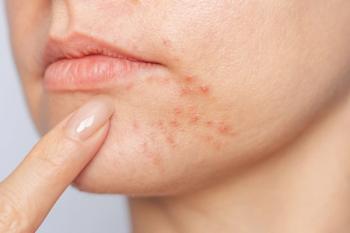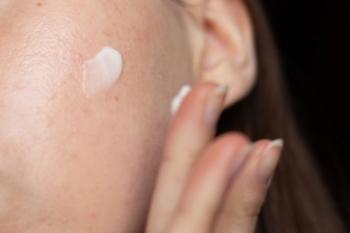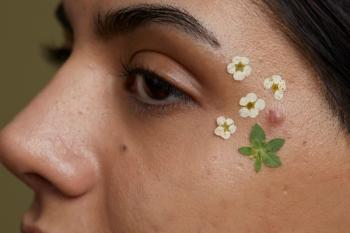
Combo treatment for polycystic ovarian syndrome acne
Combining metformin and oral contraceptives to treat polycystic ovarian syndrome has little impact on quality of life measures including acne, a study shows.
Combining metformin with oral contraceptives to treat polycystic ovary syndrome has relatively little overall benefit for women’s health related quality of life compared with treatment with metformin or oral contraceptives alone, suggests a 12-month study published in the journal Gynecological Endocrinology.
More than 10% in women of reproductive age experience polycystic ovary syndrome, which is associated with a tendency to have excess body hair, obesity, acne and irregular menses, which impacts on their health-related quality of life.
Metformin treatment is the usual recommended treatment for women with polycystic ovary syndrome and obesity, insulin resistance or type-2 diabetes mellitus, whereas oral contraceptives are most often prescribed for hirsutism and irregular menses.
While oral contraceptives could be combined with metformin to avoid weight gain, a six month study found that combining a fourth generation oral contraceptive pill with metformin did not change health related quality of life in obese adolescents with polycystic ovary syndrome who also underwent lifestyle-changes. However, recognizing longer treatment may have more of an impact, Danish researchers set out to assess the impact of combining treatments over 12 months.
Ninety women with polycystic ovary syndrome were randomized to treatment with metformin, oral contraceptives or both metformin and oral contraceptives combined. The health-related quality of life of 65 women was assessed using a PCOS-specific visual analog scale (PCOS-VAS) for facial hair, body hair, acne, irregular menses, weight, and PCOS in general. Patients also completed the Short Form Health Survey, a 36-item survey (SF-36) covering eight health domains: physical function, physical role limitation, body pain, general health, vitality, social function, emotional role function, and mental health.
A total of 15 women dropped out due to side effects, desire for pregnancy or other reasons, or were lost to follow up, so data on 65 women were included in the analysis.
Over the 12 months greater improvement was seen in facial hair in the group of women treated with oral contraceptives alone (n = 23) and the group treated with metformin and oral contraceptives combined (n = 23), compared with the group of women treated with metformin alone (n = 19).
However, while improvements were seen in body hair, acne, irregular menses, weight, and PCOS in general across all three treatment groups (all p < .05), overall there was little difference between the three medical intervention groups in the PCOS-VAS and SF-36.
For acne, PCOS-VAS score decreased by 0.4 with metformin treatment, by 1.8 with oral contraceptives and by 2.6 for the two treatments combined.
Changes in PCOS-VAS were not associated with changes in BMI or hirsutism (Ferriman-Gallwey scores).
Women treated with metformin experienced significant weight-loss during – a median weight of 3.0 kg – while those treated with metformin plus oral contraceptives lost a median of 1.9 kg and those treated with oral contraceptives alone gained a median of 1.2kg in weight. Combining metformin with oral contraceptives was associated with a reduction in Ferriman-Gallwey scores of -4, whereas individually the treatments had no impact on Ferriman-Gallwey scores.
Treatment with oral contraceptives alone or combined with metformin was superior to metformin alone in decreasing facial hirsutism, said Magda Lambaa Altinok, M.D., of the Department of Endocrinology and Metabolism at the Odense University Hospital, Odense in Denmark. Otherwise, changes in PCOS-VAS and SF-36 scores were comparable between the three treatment modalities despite significant improvements in BMI and Ferriman-Gallwey scores.
“Health related quality of life changes were comparable between 12-month randomized metformin and/or oral contraceptives treatment in relatively healthy and lean women with polycystic ovary syndrome,” she said, but added: “The study could be underpowered to detect minor differences in health-related quality of life.”
“Long-term randomized studies are needed but will be difficult to carry out in a clinical setting,” she said.
REFERENCES
- Magda Lambaa Altinok, Pernille Ravn, Marianne Andersen & Dorte Glintborg (2018) Effect of 12-month treatment with metformin and/or oral contraceptives on health-related quality of life in polycystic ovary syndrome, Gynecological Endocrinologyical, 34:10, 859-863, DOI: 10.1080/09513590.2018.1460343
- Harris-Glocker M, Davidson K, Kochman L, et al. Improvement in quality-of-life questionnaire measures in obese adolescent females with polycystic ovary syndrome treated with lifestyle changes and oral contraceptives, with or without metformin. Fertil Steril 2010;93:1016–19
Newsletter
Like what you’re reading? Subscribe to Dermatology Times for weekly updates on therapies, innovations, and real-world practice tips.











